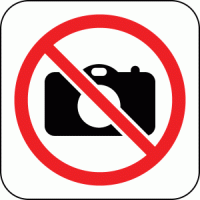Throughout history, there have been technologies that are so fundamental to power relationships within a society that their possession and use has been an inevitable bone of contention. The most well-known example of that is firearms. Being in many ways the ultimate personal weapon, a great equalizer that nullifies any advantages of physical size or strength, gun rights are argued endlessly. Some feel that the possession of guns by private individuals is too dangerous, as it raises the lethality of interpersonal conflict, and thus argue for gun use to be restricted to the police and the military; others argue that widespread firearms ownership is the best protection against criminal behaviour and state oppression. In some countries, with weak central governments (or none, as in Somalia), everyone is allowed to possess a weapon more or less by default. In contrast, some countries with strong central governments (Japan, England), have banned them outright. The US has a right to keep and bear arms written into it's constitution (though that right has been steadily eroded, as the central government became more powerful.)
This is not a new battle; pre-gunpowder societies saw similar argument and diversity regarding the use and ownership of all manner of weapons. In some places, everyone was allowed to walk about openly armed; in others, the possession of a weapon was strictly limited to professional warrior castes and nobility. And once again, in general, the strength of central government was a good predictor of the degree to which weapons were restricted.
In terms of the effects of personal combat systems on society, firearms have likely come about as far as they ever will. Great improvements in accuracy might well be made (smart rounds, for instance); completely different propulsion systems used which increase muzzle velocity (say, electromagnetically instead of chemically); but the overall principle of a handheld weapon that makes one human more or less equal to another in combat potential, regardless of physical size or strength, is unlikely to change.
Personal recording devices, on the other hand, are just beginning to make their presence really felt. From their first appearance in the 20th century - expensive, delicate, their use restricted more or less to professionals and hobbyists - they have no proliferated to the point where practically everyone has a digital camera, often built into their phone. Technologies such as the eyeFi are allowing pictures to be instantly uploaded to the web, viewable by anyone. We are entering the age of the participatory panopticon, where everyone is watched by everyone.
Some see this as a dangerous attack on liberty, as they believe the constant surveillance will be exploited by states and corporations in order to build a perfect tyranny where everything - and everybody - is watched, tracked, tagged and thus controlled. They are not wrong to fear this; it is almost a certainty that such surveillance systems are being prepared right now. In some parts of the world, tyranny will be a very real possibility ... especially if the citizenry are not in possession of their own recording devices.
The reasoning is simple. If the people are watching, recording, and sharing information as much or more than the government, it becomes very difficult for the government to engage in criminal behaviour (which surely any attempt to tyrannize, anywhere, should rightly be considered.) Just as a citizen breaking a law will be instantly caught, so an official violating someone's human rights will be instantly known. Tyrannies can't survive such openness, relying as they do on the complicit ignorance of their victim populations.
The conflict over use of personal recording devices has already began. If you doubt this, just try walking around and airport taking lots of pictures. I have no doubt that it will intensify greatly, as more and larger areas become designated 'no-photography' zones.  Watch for the signs to proliferate over the next few years, like no-smoking signs did through the 80s and 90s.
Watch for the signs to proliferate over the next few years, like no-smoking signs did through the 80s and 90s.
(You know, sometimes I wonder if an empty no sign might not be the most apt symbol for the corporate fascism that seems to be the prevailing form of governance at the outset of the 21st century. Someone should make an internet map of number of no-X signs per city block. I'll bet you could correlate that to fascism pretty nicely.)
Conversely, areas where freedom prevails will be those in which sousevailling citizens vigilantly watch their masters from below, immediately punishing even the slightest infraction against human rights, and thus maintaining a healthy balance between rule of law and protection of rights and freedoms. Just as America preserved its famous freedom through two hundred years by enshrining the right to keep and bear arms in its constitution, an inalienable right to record and disseminate whatever one pleases will be an invaluable protection in the future. Freedom of speech, yes, but also freedom of sight.
The dichotomy between freedom and tyranny is closely bound to secrecy and transparency, which are respectively anathema to the one and a necessity to the other. If you want to keep freedom alive in the twentieth century, you're going to have to fight for your right to point a camera at the ones who want to take it away.
Sunday, December 23, 2007
The Right to Keep and Bear Recording Devices
Posted by
psychegram
at
12:57 AM
![]()
Labels: democracy, surveillance, technology
Subscribe to:
Post Comments (Atom)

No comments:
Post a Comment